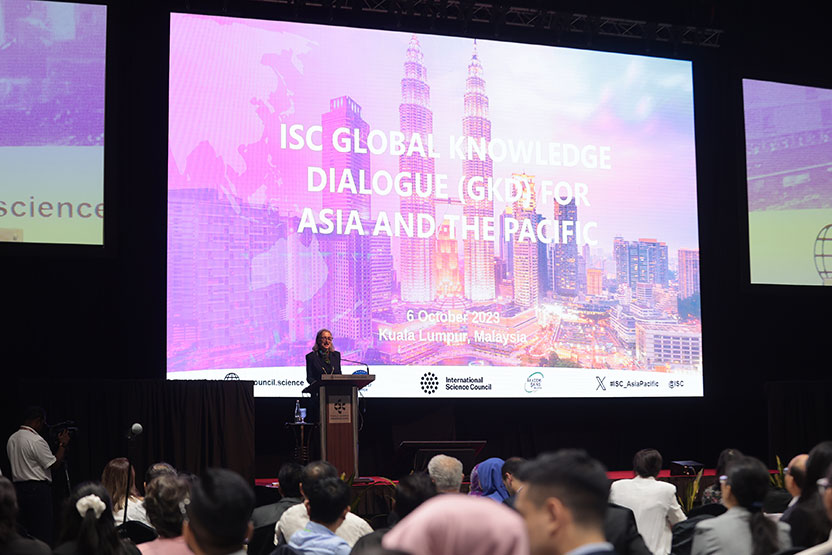
Scientists from 31 countries came together in Kuala Lumpur on 6 October for the International Science Council’s (ISC) Global Knowledge Dialogue, the first held in the Asia-Pacific region.
Jointly hosted by the Academy of Sciences Malaysia and the ISC Regional Focal Point for Asia and the Pacific, the event saw 150 participants contribute to topics on science for sustainability, interdisciplinary health and living within planetary boundaries, all designed to address the Sustainable Development Goals through science advice and diplomacy.
The ISC Regional Focal Point for Asia and the Pacific is led by the Australian Academy of Science, and this gathering allowed members from the region to share their respective priorities and discuss how to strengthen the voice of science in the region.
Dr Tengku Mohd Azzman Shariffadeen, President of the Academy of Sciences Malaysia, set the tone for thought provoking dialogue throughout the day.
“The challenges that we face during these post-normal times cannot be resolved with existing tools,” Dr Shariffadeen said.
“They require new modes of thinking and new ways of doing things. We need a post-normal science if we want to truly address the serious threats and challenges that confront human life.”

Meeting participants also heard from Malaysia’s Deputy Minister of Science, Technology and Innovation, Yang Berhormat Datuk Arthur Joseph Kurup, who drew important ties between science, technology and innovation, and economic prosperity.
ISC President Professor Sir Peter Gluckman FRS acknowledged the region was vulnerable in many ways to the sustainability challenges and that there was broad support for the ISC work in the region.
“We’re hearing from both the young scientists and the more senior scientists that they really want to see action and so the key thing is how can we as the global voice for science assist them in achieving action,” Sir Peter said.
Professor Frances Separovic AO FAA, Foreign Secretary of the Australian Academy of Science, attended and spoke about the need for diverse voices to contribute to our science systems and about the importance of engaging with the community to retain societal trust in science.
Dr Petra Lundgren, Director of the ISC Regional Focal Point for Asia and the Pacific, said one of the main objectives in the region is to build capacity to ensure the needs and priorities of the region are reflected in the global decision-making.
© 2025 Australian Academy of Science